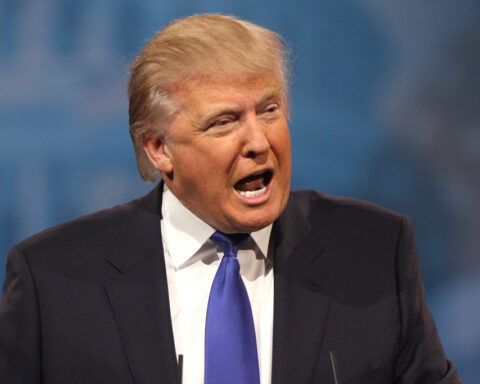For decades, Saudi Arabia anchored its national security on American protection. But this week, the kingdom charted a new course.
On Wednesday, Riyadh reportedly signed a defense pact with Pakistan, the only Muslim-majority country armed with nuclear weapons—an agreement that underscores Saudi unease with Washington’s reliability and growing frustration with Israel’s conduct in the region.
The deal comes just one week after Israel launched a missile strike targeting Hamas officials in Qatar, a U.S. partner in the Gulf.
The attack rattled the region and sharpened Saudi concerns that Israel, a beneficiary of extraordinary American backing, is “getting away with whatever it wants to get away with,” as Ali Shihabi, a Saudi commentator close to the kingdom’s leaders, put it.
The Saudi-Pakistan pact does not replace the U.S. presence. American firepower remains unmatched, and security cooperation between Washington and Riyadh continues.
Still, the agreement sends a clear message: Gulf states are now looking beyond Washington for guarantees. According to Shihabi, Saudi Arabia and Pakistan had been quietly discussing the pact for several years.
In a joint statement, the two countries announced that “any aggression against either country shall be considered an aggression against both.” The language is aimed at deterrence—above all against Iran, Saudi Arabia’s long-standing rival, and amid heightened regional volatility since the Israel-Hamas war erupted in 2023.
Israel and Iran alike have carried out strikes on Qatari soil in the past year, leaving Gulf states anxious about escalation.
The move also represents a setback for U.S. efforts to integrate Israel more closely into a regional security bloc to counter Tehran. Those efforts once hinged on Arab recognition of Israel in exchange for movement toward Palestinian statehood.
But after the October 7 Hamas attacks, the war in Gaza, and Israel’s strike in Qatar, momentum toward Saudi-Israeli normalization has collapsed.
Saudi Arabia’s choice of Pakistan is deliberate. Islamabad, despite economic fragility, is a military heavyweight aligned with both China and Russia while maintaining U.S. ties.
The two countries share decades of security cooperation. Pakistan has stationed troops in Saudi Arabia in the past, training alongside Saudi forces, while Riyadh has provided billions in loans and investments to its South Asian partner.
Pakistan’s military has its own volatile neighborhood. This spring, it engaged in a missile and drone exchange with nuclear-armed India, underscoring the risks of regional entanglements.
Yet for Riyadh, Islamabad’s nuclear status and military reach provide an additional layer of deterrence that U.S. promises alone no longer guarantee.
Saudi leaders were particularly outraged by Israel’s strike in Qatar. Within days, Crown Prince Mohammed bin Salman led a high-profile delegation to Doha, despite having spearheaded an economic embargo against Qatar in 2017.
The visit symbolized shifting alliances in a Gulf where anger at Israel’s actions is increasingly overtaking deference to Washington’s agenda.
Faith in American guarantees has been slipping for years. Riyadh took note when, in 2019, the Trump administration declined to respond militarily after Iran attacked Saudi oil facilities.
In 2022, the U.A.E. concluded the Biden administration had not adequately countered Houthi missile strikes on Abu Dhabi. The perception in the Gulf is that U.S. protection is conditional—and eroding.
Saudi Arabia still fields the largest military in the Gulf and has long been America’s most important Arab security partner. But with the kingdom now balancing close ties to China and seeking alternatives with Pakistan, Washington faces the uncomfortable reality that its dominance in the Middle East is no longer unquestioned.
[READ MORE: Trump Turns the Tables on Europe Over Russia Sanctions]






